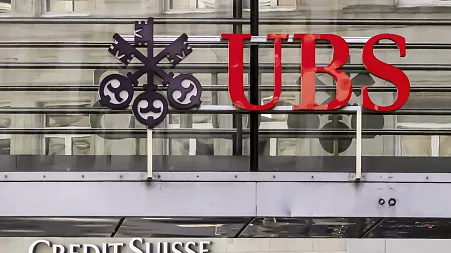A-level results are an August rite of passage for hundreds of thousands of teenagers, but this year the students won’t be the only ones swallowing hard as they open envelopes and emails.
For most, these results determine the path into higher education, and, with the university sector facing a funding crisis, scores of vice-chancellors will be feeling just as anxious as their future charges.
Years of underfunding have profoundly weakened the finances of the sector, with widespread concern that a shortage of student numbers could be disastrous for the most exposed.
Across the UK universities are cutting jobs and closing departments. There is even talk of closures and mergers of struggling institutions.
The situation is serious enough for university collapses to feature on the new government's "s*** list" of potential crises.
Universities are being squeezed by the long-term impact of suppressed tuition fees, and short-term changes to visa regulations for overseas students on whom they have come to rely.
Add concern among British teenagers about the viability of taking on tens of thousands of pounds of debt for the privilege of an education their parents enjoyed largely for free, and this could be the crunch for one of the few sectors in which the UK is genuinely world-leading.

Overseas focus
Tuition fees are the largest single source of income in higher education, contributing almost £27bn in 2022-23, more than the total from grants, research funding and other income combined.
But fees for domestic students have been capped at £9,250 a year since 2017, and have only risen once since they were tripled to £9,000 by the coalition government in 2012.
Had they risen in line with inflation, annual fees this year would be £12,560, meaning that in real terms fees have fallen by 30%.
As a result, UK students do not cover the cost of their education, a position most institutional leaders believe is unsustainable.
To make up the gap universities have chosen - or been compelled - to focus on overseas students, who can pay between £12,000 and £50,000, and over the last five years the sector's reliance on this income has grown.
Sky News analysis of data from the Higher Education Statistics Agency shows that in 2018-19 overseas students made up 20% of the student roll and contributed 37% of the fees income, around £7.2bn.
By last year the overseas population had grown to 26%, now contributing 46% of the fees income, around £11.7bn.
Where the students come from has changed too, which some attribute to a combination of Brexit and the public cooling in UK relations with China.
Income from EU students has fallen by 25% while India is now the largest single contributor, overtaking China last year, with Nigeria third.
Keep up with all the latest news from the UK and around the world by following Sky News
Chasing students
Last year the Conservative government moved to reduce the flow of overseas students, and more specifically their dependents, motivated by concern about net migration figures rather than higher education.
Overseas students can no longer bring dependents, a move that has already seen a fall in monthly visa applications.
Former home secretary James Cleverly also announced a review of the so-called graduate route that allows students to work for two years post-study, and increased the salary threshold for spouses moving to the UK to £38,700, well above the early-career academic average.
The salary threshold was reduced to £29,000 after the consequences of putting a price on marriage became clear and the new government has committed to review both measures, but universities say they have already had a chilling effect.

The Office for Students estimates that foreign student applications will fall by almost 175,000 this year, from almost 760,000 in 2022-23 to less than 590,000. The last time numbers were that low was before the pandemic, when overseas fees income was around £3bn lower.
Anecdotally meanwhile universities report a dramatic fall off in interest from both overseas and domestic potential applicants.
That makes this clearing season crucial as institutions under strain chase students.
We can expect to see lower offers made to students - good news for some as grades are expected to be corrected from inflated COVID levels - alongside incentives such as the competition to win a year's free accommodation offered by one college.
If that sounds like a gimmick the financial reality is no joke.
Read more analysis:
Asda looks to be in a bad way
What UK inflation rise could signal
Big question for BT's future
Britain has half a dozen billion-pound universities, led by Oxford with an income of almost £3bn last year, but they are the exception among more than 400 institutions.
Universities UK reports that one in four of its 130-odd members has recorded a budget deficit for at least two consecutive years, and even the Russell Group of 24 self-appointed "leading universities" has more courses available in clearing than usual.
That makes the race to attract students and the fees that come with them, no matter how inadequate, very real indeed.
Disclaimer: The copyright of this article belongs to the original author. Reposting this article is solely for the purpose of information dissemination and does not constitute any investment advice. If there is any infringement, please contact us immediately. We will make corrections or deletions as necessary. Thank you.



